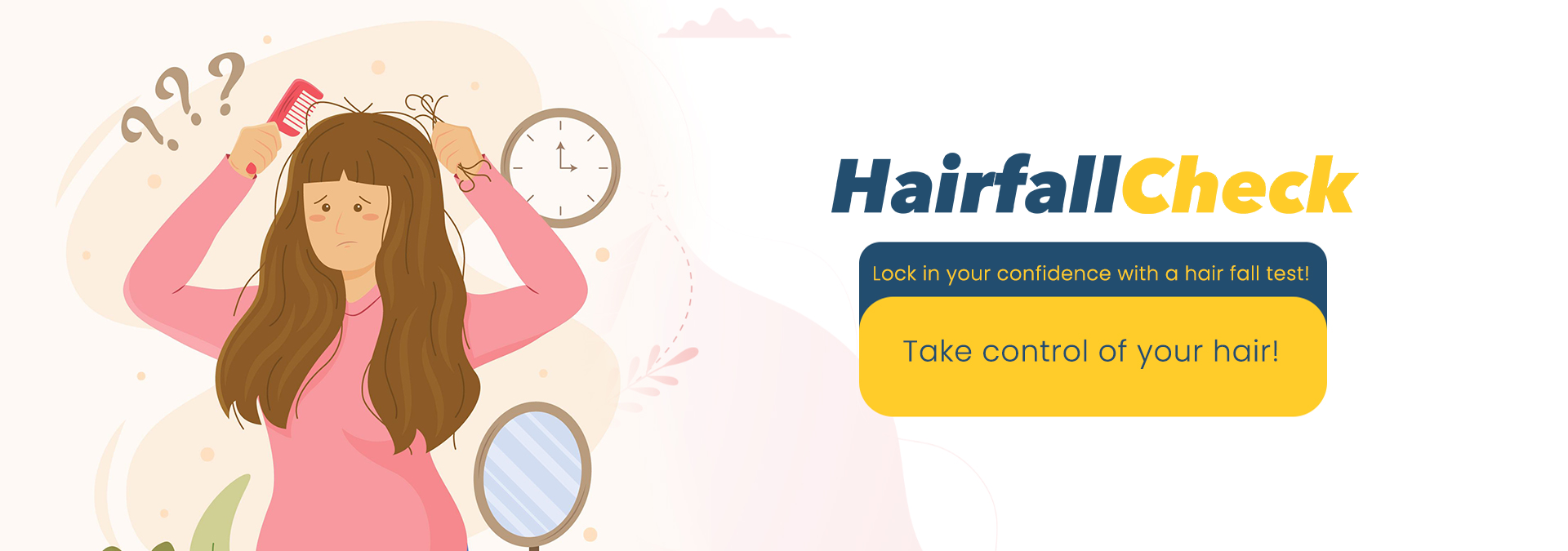Overview
About Hairfall Check:
A hair fall test is a diagnostic assessment that evaluates the underlying causes of hair loss. It involves analysis of blood sample to determine factors such as nutritional deficiencies and hormonal imbalance that cause hairfall in men and women.
Who should get tested:
Hair fall testing is recommended for individuals experiencing:

Excessive hair loss

Thinning hair

Noticeable decrease in hair density.
It is especially beneficial for those seeking to identify the underlying causes of their hair fall and experiencing the early signs of alopecia.
Evaluating HairFall Check outcomes:
Assessing the outcomes of a hair fall test provides valuable insights into identifying potential causes such as nutritional deficiencies and hormonal imbalances. This information empowers individuals to make informed decisions about lifestyle changes, treatments, and interventions to effectively manage hair fall and promote hair regrowth.
Doctor
4ml
What does HairFall Check Detect?
A hair fall test detects various factors contributing to hair loss, including nutritional deficiencies, hormonal imbalance, and underlying medical abnormalities.
Frequently asked questions
A hair fall test involves analysing blood sample to identify and evaluate the factors that trigger hairfall. Such factors may be caused by hormonal imbalance or arise out of certain nutritional deficiencies.
A hair fall test can identify causes such as nutritional deficiencies, hormonal imbalances, and underlying medical issues, providing insights into specific hair loss causes and triggers.
No, a hair fall test is non-invasive and painless, typically involving a simple blood test. The blood sample is drawn through your vein and is performed by an expert and trained phlebotomist following approved safety guidelines.
Results' turnaround time is usually next day to receive a comprehensive analysis and results.
Results' turnaround time varies, but it usually takes a few days to a couple of weeks to receive a comprehensive analysis and results.
Treatment options depend on identified causes and may include lifestyle changes, dietary adjustments, medications, topicals, or more. It is highly recommended to visit a trained dermatologist to address specific factors.
Yes, the test is suitable for both genders, providing insights into underlying causes of hair loss and guiding appropriate treatment approaches.













